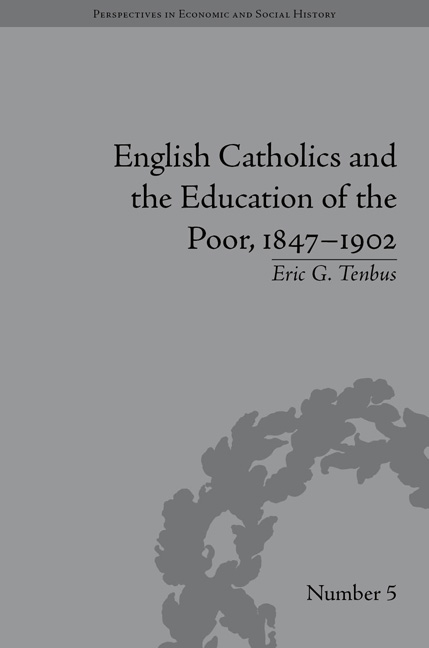Book contents
- Frontmatter
- CONTENTS
- Dedication
- Preface and Acknowledgements
- 1 A Church Divided and the Educational Solution
- 2 The Status of Catholic Education at Mid-Century and the Catholic Educational Philosophy
- 3 Educational Obstacles to Overcome
- 4 English Catholics and the Politics of Education, 1847–70: Preparing for Battle
- 5 English Catholics and the Politics of Education, 1870: The Battle Begins
- 6 English Catholics and the Politics of Education, 1871–90: Engaging With the Enemy
- 7 English Catholics and the Politics of Education, 1891–1902: A Strategy for Success
- 8 Catholic Education and Identity after the Balfour Act: The Battle Ends but the Fight Continues
- Notes
- Works Cited
- Index
8 - Catholic Education and Identity after the Balfour Act: The Battle Ends but the Fight Continues
- Frontmatter
- CONTENTS
- Dedication
- Preface and Acknowledgements
- 1 A Church Divided and the Educational Solution
- 2 The Status of Catholic Education at Mid-Century and the Catholic Educational Philosophy
- 3 Educational Obstacles to Overcome
- 4 English Catholics and the Politics of Education, 1847–70: Preparing for Battle
- 5 English Catholics and the Politics of Education, 1870: The Battle Begins
- 6 English Catholics and the Politics of Education, 1871–90: Engaging With the Enemy
- 7 English Catholics and the Politics of Education, 1891–1902: A Strategy for Success
- 8 Catholic Education and Identity after the Balfour Act: The Battle Ends but the Fight Continues
- Notes
- Works Cited
- Index
Summary
The Roman Catholic elementary school system in England and Wales after the 1902 Balfour Act was markedly different from that which first accepted state financial assistance over a half a century before. The same can be said about the Catholic community. The pursuit of a fair resolution to the education difficulty grew into an obsession that dominated the Catholic agenda for half a century. Certainly, Catholic leaders recognized other problems that required attention and effort to improve the lives of the faithful in England and Wales. Clerical and lay leaders worked persistently to better housing and working conditions, combat public drunkenness, improve Catholic devotional life and fight leakage from the faith. But the struggle for the schools brought more Catholics together on the same subject and facilitated more action than any other effort. A subject that consistently dominated the Church's policy over so many decades and under the guidance of so many leaders during an era that often witnessed rancorous fights about its implementation and tested sectarian resolve was bound to become part of that community's lifeblood, something by which that community was immediately identified. Victorians knew that Catholics took education seriously; the proof, as this study has shown, existed in the multitude of petitions, speeches, sermons, editorials, meetings and reports generated by a motivated religious community committed to the educational well-being of its children.
- Type
- Chapter
- Information
- English Catholics and the Education of the Poor, 1847–1902 , pp. 149 - 156Publisher: Pickering & ChattoFirst published in: 2014



